
Last Updated At: 05-Apr-2024
Top 10 Temples In West Bengal You Must Visit In 2024
Nestled amidst the lush landscapes and bustling cities of West Bengal, a tapestry of spiritual sanctuaries and ancient marvels graces the land. Temples here aren't merely brick and mortar; they are living testaments to devotion, history, and the intricate interweaving of faith with architectural splendour.
Temples in West Bengal | Where the Divine Meets the Devotee
- The Kalighat Temple | Eternal Flame of Devotion
- Dakshineshwar Kali Temple | Ganges' Whispered Benediction
- Birla Mandir | Whispers of Divinity in Stone
- Belur Math | Sanctum of Wisdom and Grace
- Chinese Kali Temple | Harmony of Faith and Architecture
- Lake Kalibari Temple | Reflections of Sacred Serenity
- Taraknath Temple | Celestial Echoes in Time
- Calcutta Jain Temple | Sculpted Devotion in Timeless Stone
- Mahishamardini Temple | Valour Carved in Stone and Spirit
- Shrinkhala Devi Temple | Boundless Grace, Unveiled
1. The Kalighat Temple | Eternal Flame of Devotion
The Kalighat Temple, a radiant jewel nestled in the heart of Kolkata, stands as a testament to devotion and spirituality. Dedicated to the fierce goddess Kali, this sacred abode is ensconced in the Kalighat areas. An aura of ancient sanctity envelopes the temple, deemed one of the revered 51 Shakti Peethas. Here, the fragments of the divine Goddess Sati are believed to have alighted. As you step into the temple's hallowed precincts, an imposing idol of Kali, sculpted from ebony stone, captivates with its three penetrating eyes, numerous arms, and a gleaming golden tongue. The central sanctum cradles this self-manifested deity, symbolising power and cosmic energy. A microcosm of divinity sprawls within the temple complex, housing Kali and other Hindu deities. Amidst your exploration, remember to discover the wonders of Natmandir, the serene aura of Shosti Tala, the whispers of Harkath Tala, and the tranquillity of Kundupukur, all intertwined in this spiritual haven. Navratri and Durga Puja are the best time to visit temples in West Bengal like these.
- Location: Kolkata
- Timing: Open 24 hours
2. Dakshineshwar Kali Temple | Ganges' Whispered Benediction
Venturing along the radiant tapestry of Kolkata's spiritual landscape, the Dakshineshwar Kali Temple, one of the most famous temples in West Bengal, emerges as a luminary. This ethereal edifice is a reverent tribute to the goddess Kali, embodying the very essence of divinity. Enshrined within the Dakshineshwar area, this temple mirrors the legend of Sati's sacrifice, with its consecrated ground being the sanctified spot where her tongue fell. As history unfolded, Rani Rashmoni, a luminous merchant woman, graced the 19th century by commissioning this marvel. The temple transcends its physicality, as the presence of the revered saint, Ramakrishna, elevates its sanctity. Amidst its ornate architecture, the echoes of his teachings resonate, weaving an inseparable connection between seeker and deity.
- Location: Kolkata
- Timing: 6 AM to 9 PM
3. Birla Mandir | Whispers of Divinity in Stone
In the heart of Kolkata's Ballygunge district stands the Birla Mandir, a symphony etched in marble, exuding devotion and architectural grandeur. Born from the vision of the illustrious Birla family, this 20th-century temple is an ode to Radha Krishna. The temple's structure is an opulent canvas adorned with intricate engravings, each stroke echoing verses from the sacred Bhagavad Gita. Amidst its grandeur, the temple beckons the soul to seek solace and divine communion and discover one of the prominent tourist attractions in West Bengal's temples.
- Location: Kolkata
- Timing: 5:30 AM to 9 PM
Also Read: Dishes Of West Bengal
4. Belur Math | Sanctum of Wisdom and Grace
The Belur Math, a sacred sanctum of wisdom and serenity, unfurls along the tranquil banks of the Ganges. This monumental edifice, graced with the spirit of Ramakrishna Paramhansa and envisioned by Swami Vivekananda, is the heart of the Ramakrishna Mission. The ethereal complex, nestled in Howrah's Belur area, encompasses more than mere brick and mortar. It cradles a temple, a monastery, a library, and a museum, woven together to house a legacy of spirituality. At its core, this temple near Kolkata dedicated to Ramakrishna stands tall, guarding his samadhi, a beacon of enlightenment and tranquillity.
- Location: Howrah
- Timing: 6:30 AM to 9 PM
5. Chinese Kali Temple | Harmony of Faith and Architecture
Venture to the crossroads of culture and devotion, and you'll find the Chinese Kali Mandir in the vibrant embrace of Tangra. A fusion of faith and architecture, this temple was conceived by Kolkata's Chinese community in the 19th century. The deity worshipped here is the formidable Kali, yet the temple's unique charm emanates from its Chinese-style architecture, which is different from the usual West Bengal temple architecture. Within its sacred precincts, four mini temples, representing Hindu, Christian, Muslim, and the unity of all religions, stand as a testament to brotherhood, bridging diverse faiths within the harmonious symphony of devotion.
- Location: Kolkata
- Timing: 5 AM to 10:30 PM
6. Lake Kalibari Temple | Reflections of Sacred Serenity
Amidst the serenity of Kolkata's Lake area, the Lake Kalibari temple stands as a tranquil haven of devotion. Crafted in the 18th century by a local merchant, Mr. Haripada Chakraborty, this temple is a testament to architectural finesse and faith. Dedicated to the formidable goddess Kali, the temple's ethereal charm is further enhanced by its picturesque setting along the shimmering banks of a serene lake. Here, the world's chaos gives way to an oasis of peace, inviting devotees to seek solace and connection in the goddess's divine embrace.
- Location: Kolkata
- Timing: 6 AM to 9 PM
Also Read: famous Festivals Of West bengal
7. Taraknath Temple | Celestial Echoes in Time
In the heart of the Tarakeshwar region in the Hooghly district, the Taraknath Temple stands as a timeless tribute to Lord Shiva in his form as Taraknath. Echoing with history, the temple's foundations were laid by Raja Bharamalla in the year 1729 AD, hence one of the most ancient temples in West Bengal. It stands as a living relic of the successful reigns of the Chola dynasty, honoured by UNESCO's recognition under the Great Chola Temples tag. On the sacred occasion of Mahashivratri, the temple pulses with devotion as thousands of seekers from across the nation gather to pay homage to Lord Taraknath. Amidst the ancient stones, the temple narrates tales of devotion and divinity, weaving a tapestry of reverence and spirituality.
- Location: Bhanjipur
- Timing: 5:30 AM to 8 PM
8. Calcutta Jain Temple | Sculpted Devotion in Timeless Stone
Nestled within the vibrant streets of Badridas Temple in Kolkata, the Calcutta Jain Temple stands as a harmonious fusion of faith and artistry. Erected in the 19th century, this temple's grandeur is dedicated to the Jain Tirthankaras, especially Pareshnath. It's a living testament to the beauty of architectural amalgamation, seamlessly blending Hindu and Jain styles. The temple complex unfolds as a sacred saga, with Chandraprabhu Ji Temple, Mahavir Swami Temple, Shitalnath Ji Temple, and Dadawadi forming its four distinct chapters and most beautiful temples near Kolkata. Here, amidst the intricacies of design, the spirit of devotion is forever enshrined.
- Location: Kolkata
- Timing: 6 AM to 7 PM
9. Mahishamardini Temple | Valour Carved in Stone and Spirit
Birbhum district's landscape holds the enigmatic Mahishamardini Temple, an abode of goddess Durga in her valiant form. Within the temple's sanctuary, the resplendent image of Mahishamardini, with her ten arms and triumphant stance atop a lion, unfurls the legend of her slaying the demon Mahishasura. The significance of this one of the most famous temples in West Bengal deepens as it finds its place among the revered 51 Shakti Peethas, where the goddess's forehead and eyebrows are believed to have descended. A pilgrimage to this sacred abode is a journey into the heart of devotion, where the triumph of good over evil is celebrated through art and faith.
- Location: Kolkata
- Timing: 5 AM to 10 PM
10. Shrinkhala Devi Temple | Boundless Grace, Unveiled
In the Tarapith area of Birbhum district, the Shrinkhala Devi Temple emerges as a sacred haven dedicated to the fierce goddess Kali. As a significant Shakti Peetha, the temple carries the essence of Sati's stomach, transforming its grounds into a pilgrimage of profound meaning. The goddess Shrinkhala, often associated with a binding thread or the cloth used by postnatal women, holds multiple layers of symbolism. Whether bound or maternal, her essence reverberates through the souls of devotees who seek solace and surrenderance in her presence. Amidst the devotion-drenched air, the temple stands as a conduit to the divine, where seekers embrace the interconnectedness of life's diverse forms.
- Location: Kolkata
- Timing: Open 24 hours
Read more: Tourist Places In West Bengal
In the sprawling tapestry of West Bengal, these temples serve as portals to the divine. They unite history, spirituality, and architecture in a dance of reverence and awe. As the sun sets over the Ganges, the echoes of devotion linger, inviting seekers to partake in the sacred journey that is woven into the very fabric of this vibrant land.
Already looking for how to reach West Bengal temples and book a comfortable stay? Visit Adotrip to get the best deals and offers on bookings and flights.
With us, nothing is far!
Frequently Asked Questions Related to Temples in West Bengal
Q1. What are the most revered temples to visit in West Bengal?
A1. West Bengal is home to several revered temples. Some notable ones include the Dakshineswar Kali Temple in Kolkata, the Kalighat Kali Temple, the Belur Math, the Tarapith Temple, the Mayapur ISKCON Temple, and the Birla Mandir in Kolkata.
Q2. Can I learn about the historical and religious significance of the temples?
A2. Certainly. Each of these temples has its own historical and religious significance. For instance, the Dakshineswar Kali Temple is associated with Ramakrishna Paramahamsa, while the Belur Math is the Ramakrishna Math and Mission headquarters. It is advisable to make reservations in advance, especially during high seasons. These temples often have rich histories and deep spiritual significance.
Q3. Are the temples easily accessible by road or public transport?
A3. Yes, most of these temples are easily accessible by road and public transport. They are often located in or near major cities or towns, making them convenient for visitors.
Q4. Are photography and videography allowed inside the temples?
A4. Photography and videography policies vary from temple to temple. Some temples allow photography in certain areas while prohibiting it in others, especially in the inner sanctums. It's best to check with temple authorities or signs on-site to know the rules.
Q5. What are the best times to visit the temples for festivals or special events?
A5. Many of these temples hold special events and festivals throughout the year. For instance, the Durga Puja festival at the Dakshineswar Kali Temple and the Kali Puja at the Kalighat Kali Temple are significant events. The best times to visit for festivals are usually during major Hindu holidays.
Q6. Are there any nearby attractions or cultural sites to explore along with the temples?
A6. Yes, many of these temples are located near other attractions. For example, the Dakshineswar Kali Temple is close to the Belur Math and the Vivekananda Setu. Kolkata, in general, offers a plethora of cultural sites, museums, and historical landmarks.
Q7. Can I find accommodations or guesthouses near the temples for overnight stays?
A7. Yes, especially in areas with higher tourist footfall, you can find accommodations ranging from budget guesthouses to more luxurious hotels near these temples. It is best to book in advance, especially during peak seasons.
Q8. Are there any specific customs or rituals to observe while visiting the temples?
A8. While visiting these temples, it's recommended to dress modestly and remove your shoes before entering the inner sanctums. Additionally, it's customary to offer prayers and respects to the deity. Be mindful of the religious practises and follow the guidelines provided by the temple authorities.
Q9. How do the temples contribute to the rich cultural heritage of West Bengal?
A9. These temples are not only places of worship but also cultural landmarks. They showcase the architectural styles, artistic traditions, and spiritual practises that have evolved over centuries, contributing significantly to West Bengal's diverse cultural heritage.
Q10. Are there any restrictions on entry for non-Hindu visitors at the temples?
A10. In general, many of these temples are open to non-Hindu visitors, but some restrictions might apply to certain areas within the temples. It's always a good idea to enquire about the entry policies before visiting to ensure a respectful and smooth experience.
--- Published By Adotrip
Latest Blogs

Long Weekends In India 2025 - List of Holidays

Kazakhstan Travel Guide 2025: Affordable Luxury, Visa Free E...
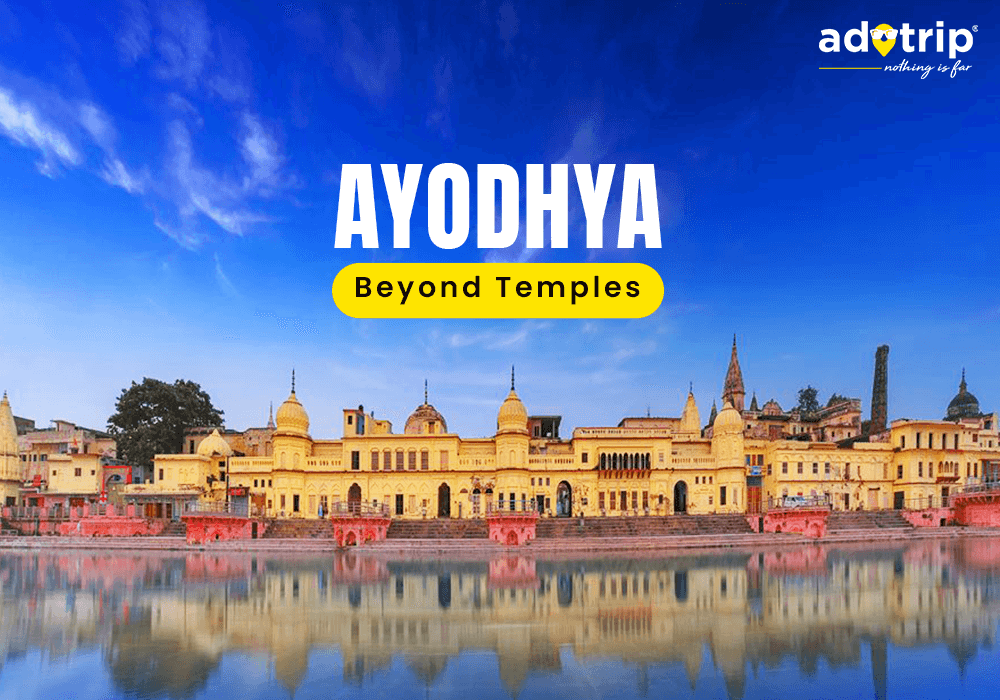
Think Ayodhya is Just Temples? Discover Its Hidden Artistic...

Why Azerbaijan is the Best Budget Friendly Alternative to Sw...



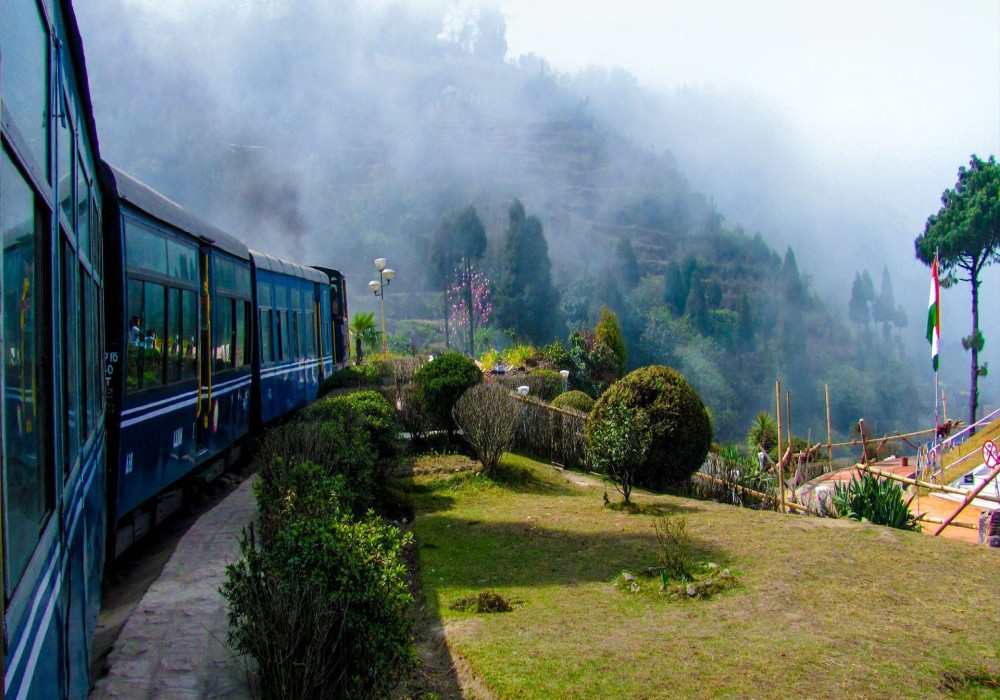

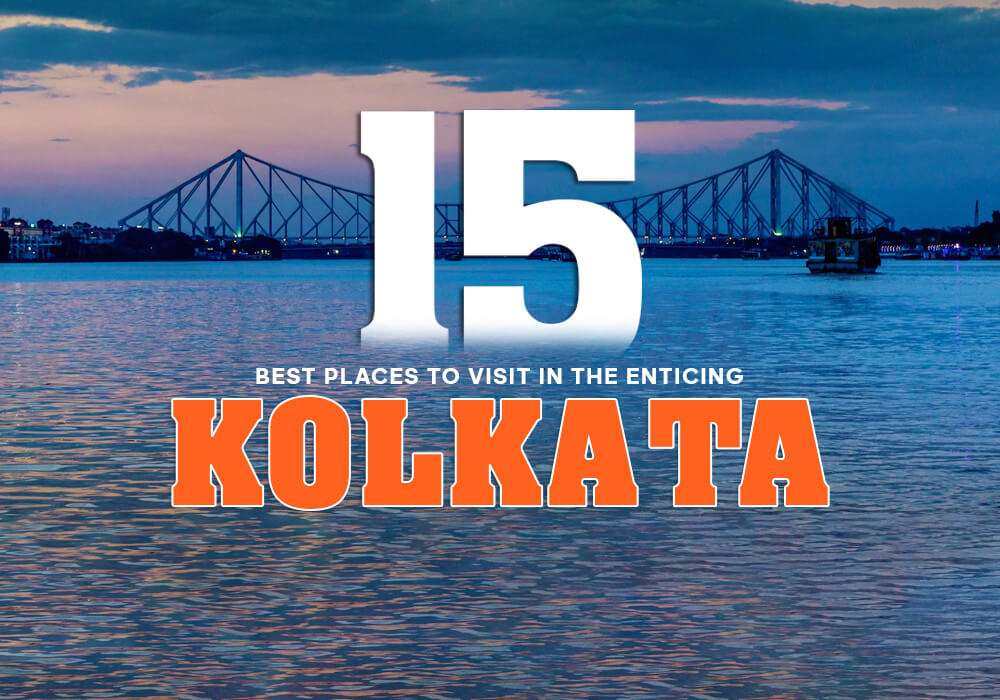

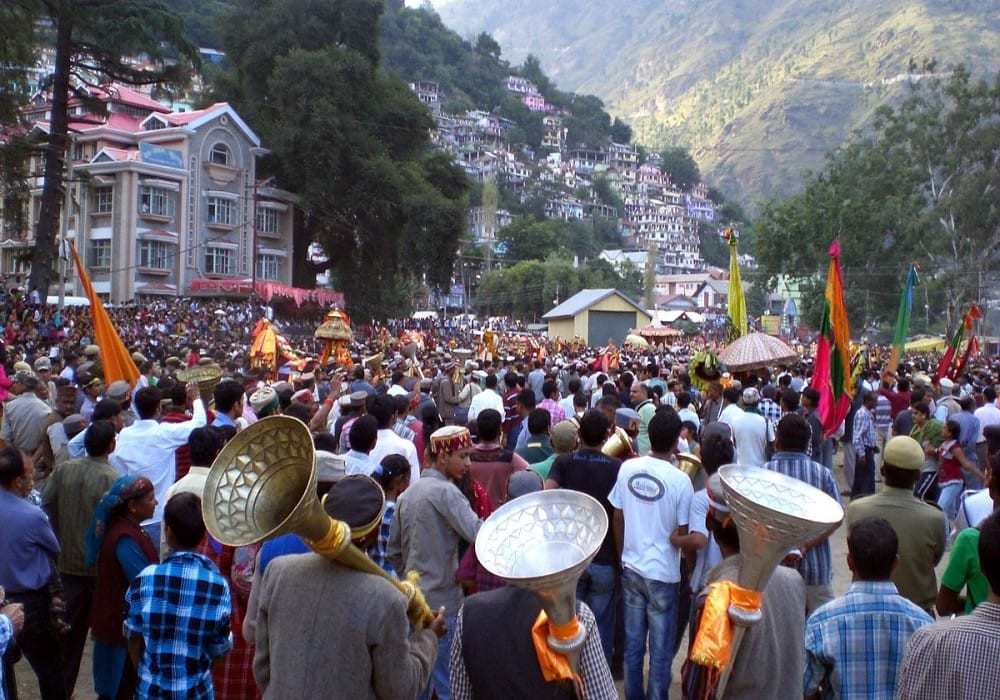


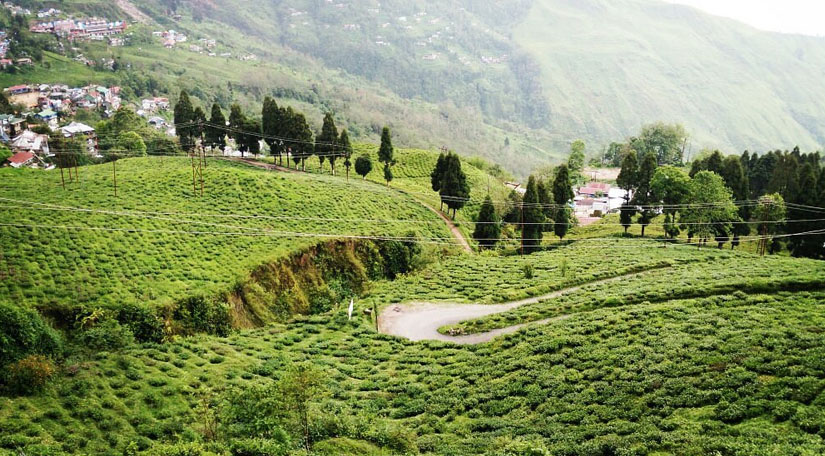
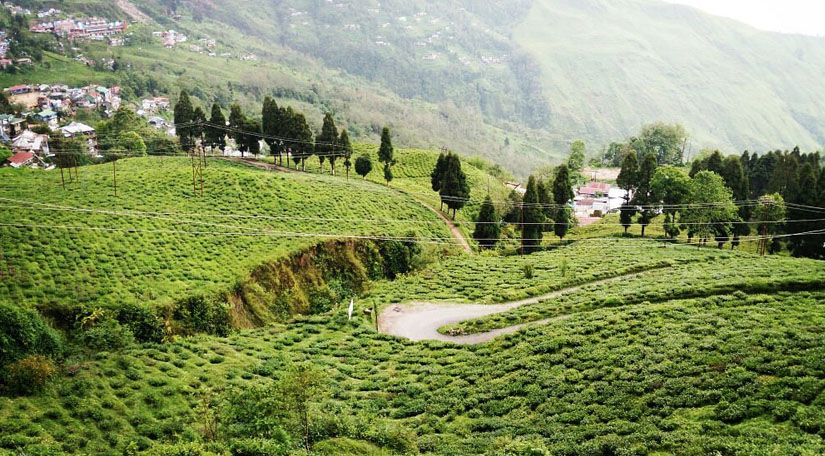
 Dubai
Dubai Malaysia
Malaysia USA
USA





